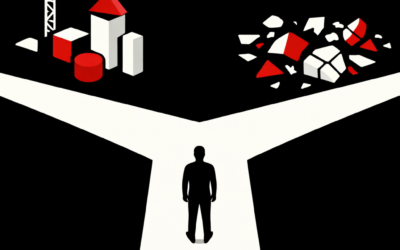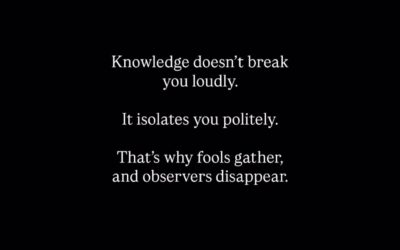In our journey to understand human behavior, many of us turn to theories and frameworks to make sense of how people act, why they hurt others, or why they seem to struggle with certain aspects of life. Theories give us a sense of control, a way to categorize and rationalize behavior that often feels chaotic or inexplicable. We seek to understand, to label, and to make sense of the world around us through these lenses.
But when it comes to the real work—the application of empathy—things get much more challenging. It’s one thing to know, in theory, that someone’s actions are shaped by their experiences, their traumas, and the way they’ve been treated throughout their life. It’s another thing entirely to feel that truth when you’re on the receiving end of their pain.
It’s natural to react with anger when someone hurts us. That’s a basic human response. But there’s a deeper, more difficult task that many of us overlook: the work of truly putting ourselves in that person’s shoes. This isn’t about excusing harmful behavior or dismissing the hurt we’ve experienced. It’s about recognizing that, just as we have our own stories, so does everyone else.
We are often not privy to the full story behind someone’s actions—their childhood experiences, their struggles, the moments that shaped them before we ever crossed their path. And yet, we judge them. We seek out theories to explain their behavior, to make it fit into a neat, understandable box. But when it comes to the actual practice of empathy—when it’s time to look beyond our own pain and consider what the other person might be carrying—that’s where the real work begins.
And it is work. It’s much easier to stay in our own pain, to focus on how we’ve been wronged, and to let anger and resentment build. But empathy requires us to stretch beyond that, to consider the possibility that the person who hurt us might be carrying their own wounds, their own scars from a life we know nothing about.
This isn’t to say that we should allow ourselves to be mistreated or that we should ignore our own feelings. Empathy is not about self-sacrifice. It’s about understanding. It’s about recognizing that, as much as we might want to make everything fit into a simple theory, real life is messy. People are messy. And understanding that messiness takes effort.
So, this post is just an expression of that thought. We all strive to understand others. We seek out theories and explanations. But when it comes to applying that understanding—when it’s time to feel empathy and to see things from another person’s perspective—that’s where the true challenge lies. And maybe, if we can acknowledge that challenge, we can start to meet it with the same energy we use to seek understanding in the first place.




0 Comments